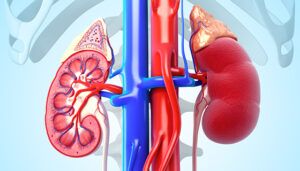What is Renal Dysfunction

Overview
The kidneys don’t function as they should be functioning due to a chronic condition called renal dysfunction. Dangerous levels of wastes may build up in the body when the kidneys lose their filtering capacity, and the blood’s chemical composition may become out of balance.
It is a typical condition that is frequently linked to aging. Although it can affect anyone, certain regions experience this more. Although it is uncommon, renal dysfunction can worsen over time to the point where the kidneys stop functioning altogether. Renal dysfunction is a condition that many people with the condition can live long lives with.
Types
- Medullary Sponge Kidney.
- Nephrotic Syndrome in Adults.
- Pain Medicine & Kidney Damage.
- Polycystic Kidney Disease
- Renal Artery Stenosis.
- Renal Tubular Acidosis.
- Simple Kidney Cysts.
- Solitary or Single-functioning Kidney.
Causes
When kidney function is compromised by a disease or condition, kidney disease develops. Over the course of several months or years, it gets worse.
Here are a few conditions that can cause kidney diseases:
- Diabetes type 1 or type 2
- Elevated blood pressure
- An inflammation of the kidney’s filtering organs is known as glomerulonephritis.
- An inflammation of the kidney’s tubules and surrounding structures known as interstitial nephritis.
- Other inherited kidney diseases, such as polycystic kidney disease
- Persistent obstruction of the urinary tract caused by diseases like an enlarged prostate, kidney stones, or some cancers
- The condition known as vesicoureteral reflux, which causes urine to back up into the kidneys
- Pyelonephritis, another name for recurrent kidney infection
